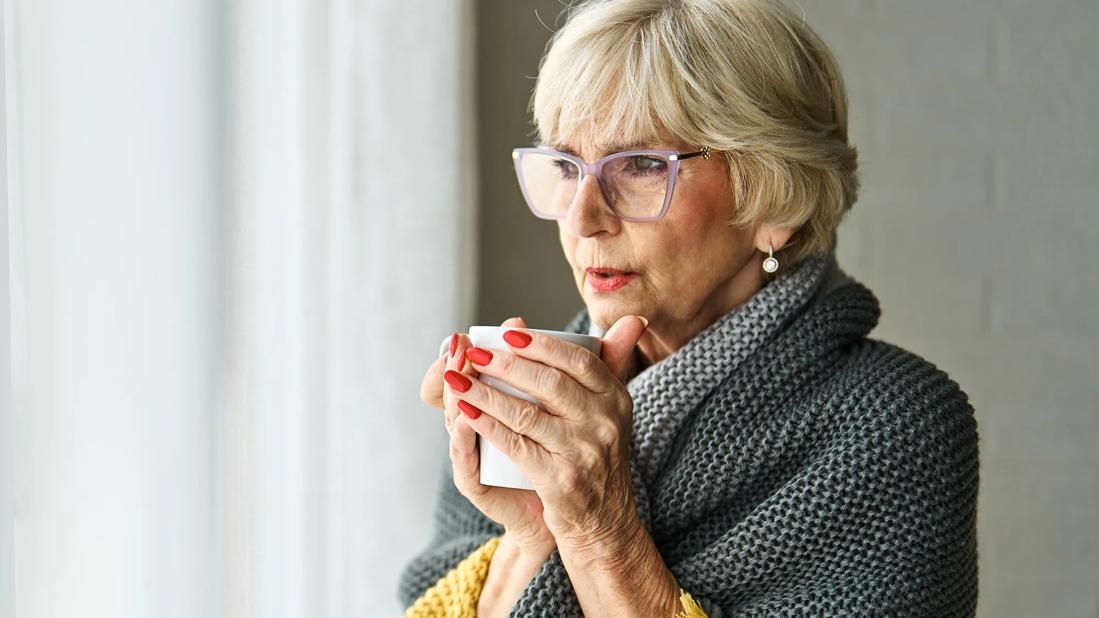Most can return to work or school when they’re symptom-free for 24 hours

Runny noses and sore throats spike during respiratory season. And respiratory illnesses like COVID-19 target your throat and lungs. They can make it harder to breathe, sleep and go about life.
Advertisement
Cleveland Clinic is a non-profit academic medical center. Advertising on our site helps support our mission. We do not endorse non-Cleveland Clinic products or services. Policy
But this virus can cause illnesses year-round.
So, what are the current guidelines?
Infectious disease physician Steven Gordon, MD, shares the latest COVID-19 protocols and what you can do to avoid getting sick.
COVID-19 may not be making the headlines it once did. But like pneumonia, it can still cause severe, life-threatening illness. You’re especially at high risk if you:
Other medical conditions like cancer and diabetes can also increase your risk of being hospitalized with COVID-19. And more than half of pediatric hospitalizations occur in children under 2 years, with a majority having no underlying medical condition.
If any of this concerns you, here’s what you can do to prevent COVID-19.
As it’s a respiratory illness, the current COVID-19 guidelines recommend taking the same precautions you would for the flu or respiratory syncytial virus (RSV).
“Any of these respiratory viruses is dangerous and can spread fast,” says Dr. Gordon.
Protocols for avoiding respiratory illnesses like COVID-19 include the following prevention strategies:
Advertisement
At-home tests are a part of safety protocols and they’re available for anyone experiencing symptoms. If you’re ill and want to know if it’s COVID-19 or the flu, getting a test will help you figure out what kind of infection you have and what treatment will help you feel better.
You can always schedule an appointment with your primary care provider, too. And if you’re too sick to leave home, telehealth appointments are often available to help you get a diagnosis.
Chances are, if you’re sick with a respiratory illness, you’re not going to want to spend a lot of time around other people. Rest is a big factor in how fast your body can rid itself of an infection, so you might want to call off work or stay home from school until your symptoms get better.
The general rule for any respiratory illness, including COVID-19, is to stay home and try to avoid contact with other people until you’re:
If you have symptoms and can’t avoid being around others, doctors advise wearing a mask to stop the spread of infection so other people you interact with won’t get sick.
Once your symptoms pass, they recommend wearing a mask and limiting unnecessary contact with others for at least five days, just to be on the safe side. If you start to feel worse or your symptoms return, make an appointment with a healthcare provider and take care of your symptoms at home.
Advertisement
COVID-19 can be serious for some people, but anyone can get it — even if you’re in good health.
These guidelines reflect our current medical understanding of how respiratory viruses spread and what’s needed to treat them. Like any health advice, they may evolve as more research becomes available.
“The latest recommendations are the same for any respiratory illness,” Dr. Gordon clarifies. “They help people take care of themselves and stop the spread.”
If there’s one thing we learned from COVID-19, it’s that viral illness protocols can change. New information becomes available all the time as viruses mutate to survive. Today’s guidelines reflect where we are now. There are even data trackers in place to measure how active respiratory viruses are year-round. Having this information helps when you’re trying to decide how to protect yourself or others from infection.
As these guidelines change, healthcare providers are here to answer any questions you have — about protocols, treatments, vaccines or care strategies. It’s always helpful to have up-to-date information so you can make the best decisions for you and your family when a respiratory illness strikes — and all year round.
Advertisement
Learn more about our editorial process.
Advertisement

Covering your mouth when you cough and staying home when you’re sick are a couple ways to help keep yourself and others COVID-free

This vital nutrient supports your health, but its role in COVID-19 prevention and treatment isn’t proven

Studies have shown promising results, but additional research is needed

Infection and inflammation can cause you to lose your voice and have other voice changes until you’re fully healed

A COVID-19 infection can bring on depression or anxiety months after physical symptoms go away

Just like the flu, COVID-19 continues to evolve every year with new and smarter variants

The latest omicron subvariants carry specific mutations that may allow the SARS-CoV-2 virus to be better at evading immune protection

You can work out with mild COVID-19, but not in a gym, and listen to your body and don’t overdo it

Wearing a scarf, adjusting your outdoor activities and following your asthma treatment plan can help limit breathing problems

Your diet in the weeks, days and hours ahead of your race can power you to the finish line

When someone guilt trips you, they’re using emotionally manipulative behavior to try to get you to act a certain way